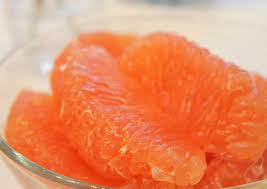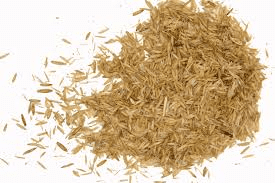The Lemon Leaves: Economic Importance, Uses, and By-Products
Lemon leaves, often overshadowed by the fruit they help produce, are essential components of the lemon tree, playing critical roles in photosynthesis, respiration, and transpiration, and providing a range of culinary, medicinal, and practical applications.
1. Photosynthesis and Energy Production: The primary function of lemon leaves is photosynthesis, the process by which green plants convert light energy into chemical energy. Chlorophyll, the green pigment in leaves, captures sunlight and uses it to transform carbon dioxide and water into glucose and oxygen. This glucose provides energy for the tree’s growth, development, and fruit production, making the leaves crucial for the tree’s overall health and productivity.
2. Respiration and Transpiration: Lemon leaves are also involved in respiration, a process that converts glucose and oxygen into energy, releasing carbon dioxide and water. Additionally, through transpiration, lemon leaves help regulate the tree’s water balance and temperature. Tiny pores called stomata, located on the leaf surface, open and close to allow gas exchange and water vapor release, playing a significant role in nutrient uptake and cooling the plant.
3. Nutrient Storage and Transport: Lemon leaves store essential nutrients and transport them to other parts of the tree. They contain various vitamins and minerals, including vitamin C, calcium, and potassium, which are critical for the tree’s growth and fruit quality. The vascular system within the leaves, comprising xylem and phloem, facilitates the movement of water, minerals, and sugars throughout the plant.
4. Culinary Uses: In cooking, lemon leaves are valued for their aromatic qualities and are used to impart a subtle citrus flavor to dishes. They are commonly used in Mediterranean, Asian, and Middle Eastern cuisines. Lemon leaves can be added to soups, stews, and marinades or used to wrap meats and fish before grilling or baking. They are also used in making herbal teas and infusions, providing a refreshing and fragrant flavor.
5. Medicinal Properties: Traditional medicine has utilized lemon leaves for their potential health benefits. They are believed to have anti-inflammatory, antioxidant, and antimicrobial properties. Lemon leaf tea is often consumed to relieve symptoms of colds, flu, and digestive issues. The essential oils in lemon leaves may also help reduce anxiety and promote relaxation.
6. Aromatherapy and Fragrance: The essential oils extracted from lemon leaves contain compounds like limonene and citral, known for their refreshing and uplifting scent. These oils are used in aromatherapy to enhance mood, reduce stress, and invigorate the senses. They are also employed in the fragrance industry to create perfumes, candles, and other scented products.
7. Ecological Significance: Lemon leaves play a vital role in the tree’s ecological interactions. They provide habitat and food for various insects, birds, and microorganisms. The leaves contribute to the tree’s role in the ecosystem by supporting biodiversity and participating in nutrient cycling through leaf litter decomposition.
8. Pest and Disease Resistance: Lemon leaves contain natural compounds that help protect the tree from pests and diseases. The leaves can produce secondary metabolites that deter herbivores and inhibit the growth of pathogens. Healthy leaves are crucial for maintaining the overall resilience of the lemon tree against biotic stressors.
9. Pruning and Care: Proper care and pruning of lemon leaves are essential for the tree’s health. Removing damaged or diseased leaves helps prevent the spread of infections and pests. Pruning also allows for better air circulation and light penetration, promoting healthy growth and fruit production.
10. Practical Uses: Beyond their culinary and medicinal uses, lemon leaves can be used in various practical applications. They can be dried and used in potpourri or as a natural air freshener. Fresh leaves can be placed in closets or drawers to impart a pleasant citrus scent to clothes and linens.
Lemon leaves are multifaceted and vital to the lemon tree’s health, productivity, and ecological role. Their functions in photosynthesis, respiration, and nutrient transport are foundational to the tree’s survival. Additionally, their culinary, medicinal, aromatic, and practical uses underscore their versatility and value beyond their primary botanical functions. Understanding and utilizing lemon leaves can enhance agricultural practices, culinary experiences, and holistic health approaches.
The Economic Importance and Uses of Lemon Leaves

1. Culinary Uses: Lemon leaves are used to impart a subtle citrus flavor to various dishes, including stews, soups, and fish recipes.
2. Tea Production: Fresh or dried lemon leaves are used to brew herbal teas, offering a refreshing and aromatic beverage.
3. Essential Oils: Lemon leaves contain essential oils that can be extracted for use in aromatherapy, perfumes, and cleaning products.
4. Herbal Medicine: Lemon leaves are used in traditional medicine for their potential therapeutic properties, including anti-inflammatory and digestive benefits.
5. Natural Air Fresheners: The aromatic properties of lemon leaves make them suitable for use in natural air fresheners and potpourri.
6. Insect Repellent: Compounds in lemon leaves can be used to create natural insect repellents, providing an eco-friendly alternative to chemical products.
7. Cosmetic Products: Extracts from lemon leaves are incorporated into skincare products for their astringent and toning properties.
8. Animal Feed: Lemon leaves can be used as a supplementary feed for livestock, providing nutritional benefits.
9. Crafting and Decorations: Dried lemon leaves are used in crafting and home decor, adding a natural and aromatic touch to various items.
10. Natural Dye: Lemon leaves can be processed to create natural dyes for textiles and other materials.
11. Soil Mulch: Chopped lemon leaves are used as mulch to improve soil health, retain moisture, and suppress weeds.
12. Compost: Lemon leaves contribute to compost production, adding valuable organic matter to enhance soil fertility.
13. Flavoring Agents: Extracts from lemon leaves are used as natural flavoring agents in the food and beverage industry.
14. Aromatic Candles: Lemon leaf oils are used in the production of aromatic candles, providing a fresh and invigorating scent.
15. Cleaning Solutions: The antibacterial properties of lemon leaf oils are harnessed in natural cleaning products.
16. Herbal Supplements: Lemon leaves are used in the formulation of herbal supplements for their antioxidant and health-promoting properties.
17. Natural Pesticides: The natural compounds in lemon leaves are processed into organic pesticides, reducing the need for chemical treatments.
18. Eco-Tourism: Lemon orchards attract tourists, providing an additional source of income through eco-tourism and agritourism activities.
Read Also: Siamese Cat Breed (Felis catus) Description and Complete Care Guide
The Products and By-products That Can Be Derived From Lemon Leaves

1. Essential Oil Extraction: Lemon leaves are steam distilled to extract essential oils, used in perfumes, aromatherapy, and cleaning products.
2. Herbal Tea: Dried lemon leaves are used to brew herbal tea, known for its refreshing taste and potential health benefits.
3. Natural Pesticides: Compounds in lemon leaves are processed into natural pesticides, offering an eco-friendly alternative to chemical pesticides.
4. Skincare Products: Extracts from lemon leaves are used in skincare products for their astringent and toning properties.
5. Insect Repellents: The natural compounds in lemon leaves are used to create insect repellent products.
6. Aromatic Candles: Lemon leaf oils are used in the production of scented candles, providing a fresh citrus aroma.
7. Natural Dyes: Lemon leaves are processed to create natural dyes for textiles and other materials.
8. Cleaning Products: The antibacterial properties of lemon leaf oils are harnessed in natural cleaning solutions.
9. Flavoring Agents: Extracts from lemon leaves are used as natural flavoring agents in the food and beverage industry.
10. Potpourri: Dried lemon leaves are used in potpourri mixtures, adding fragrance and color to home decor.
11. Herbal Supplements: Lemon leaves are used in the formulation of herbal supplements for their antioxidant and health-promoting properties.
12. Animal Feed Additive: Lemon leaves are processed into a supplementary feed for livestock, enhancing their nutritional intake.
13. Soil Mulch: Chopped lemon leaves are used as mulch to improve soil health, retain moisture, and suppress weeds.
14. Compost: Lemon leaves are composted to create nutrient-rich organic matter, enhancing soil fertility.
15. Crafting Materials: Dried lemon leaves are used in various craft items, adding a natural and aromatic touch.
16. Natural Air Fresheners: The aromatic properties of lemon leaves are utilized in air fresheners and diffusers.
17. Eco-Tourism Products: Lemon orchards attract tourists, providing opportunities to sell related products like herbal teas and essential oils.
Read Also: Savannah Cat Breed (Felis catus × Leptailurus serval) Description and Complete Care Guide
Frequently Asked Questions (FAQs) About Lemon Leaves

1. What are lemon leaves?
Lemon leaves are the foliage of the lemon tree, known for their aromatic properties and culinary uses.
2. How are lemon leaves used in cooking?
Lemon leaves are used to impart a subtle citrus flavor to various dishes, including stews, soups, and fish recipes.
3. Can lemon leaves be used to make tea?
Yes, fresh or dried lemon leaves are used to brew herbal teas, offering a refreshing and aromatic beverage.
4. What products are derived from lemon leaves?
Products such as essential oils, herbal teas, natural pesticides, and skincare products can be derived from lemon leaves.
5. Are there any health benefits of lemon leaves?
Yes, lemon leaves have potential therapeutic properties, including anti-inflammatory, digestive, and antioxidant benefits.
6. How are lemon leaves used in the cosmetic industry?
Extracts from lemon leaves are incorporated into skincare products for their astringent and toning properties.
7. Can lemon leaves be used as an insect repellent?
Yes, compounds in lemon leaves can be used to create natural insect repellents.
8. How is lemon leaf mulch beneficial for soil?
Chopped lemon leaves improve soil health by retaining moisture, reducing weeds, and adding organic matter.
9. Are lemon leaves used in traditional medicine?
Yes, lemon leaves are used in traditional herbal medicine for their potential therapeutic properties.
10. What environmental benefits do lemon leaves offer?
Lemon leaves contribute to compost production, soil health, and the overall sustainability of lemon cultivation, supporting eco-friendly practices.
Read Also: Estuary and Coastal Pollution of Brackish Water









